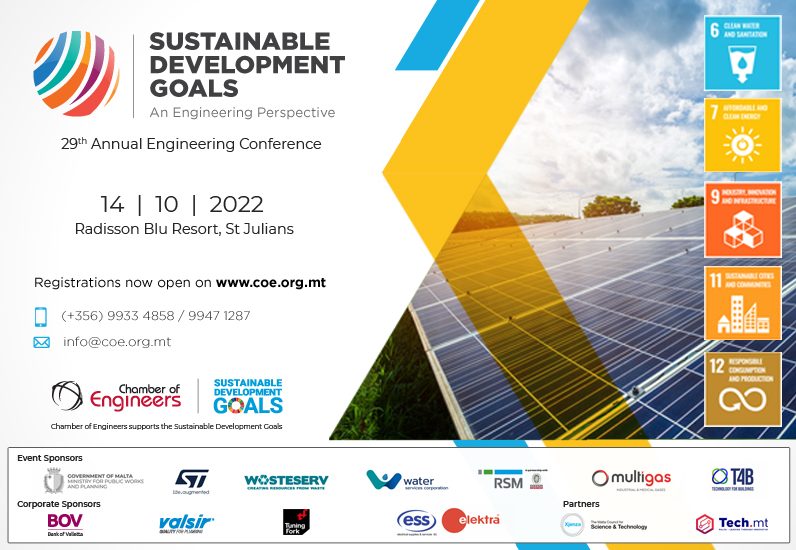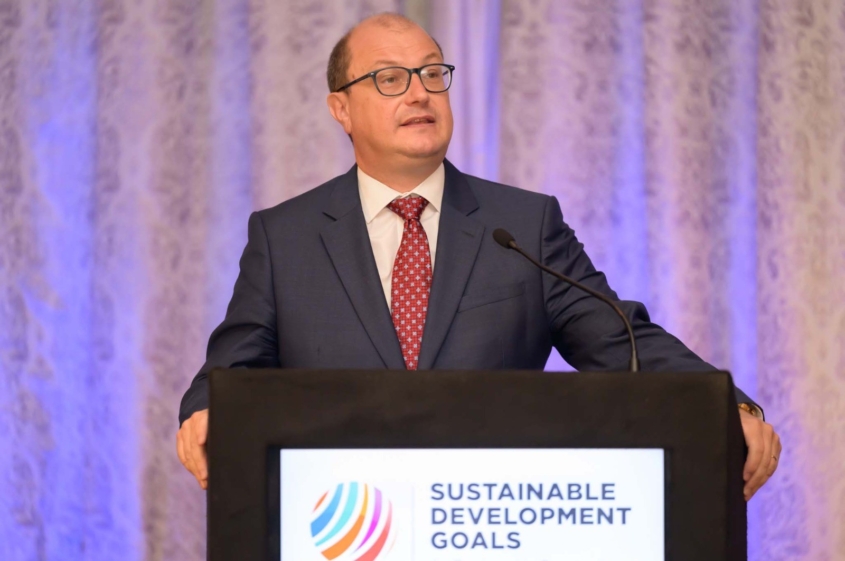The Chamber of Engineers organized the 29th Annual Engineering Conference Sustainable Development Goals: An Engineering Perspective. This conference addressed the challenges and opportunities that engineers are facing in order to achieve the goals in favor of sustainable development according to the UN 2030 Agenda for Sustainable Development. Among these we find the sanitation and supply of clean water, affordable and clean energy, industry and innovation, sustainable cities and communities, and responsible consumption and production.
“The change that the country wants to make towards an economy that is almost free of emissions is central to the development of the economic model of the future.”
As Minister of Public Works and Planning, it is refreshing to meet the engineering community at this moment. This event’s focus, justifiably, is on Sustainable Development, and the timing couldn’t have been better. This is a golden opportunity for the engineering community and its stakeholders to come up with and discuss technical and engineering solutions to Contribute to the Sustainable Development Goals (SDGs).
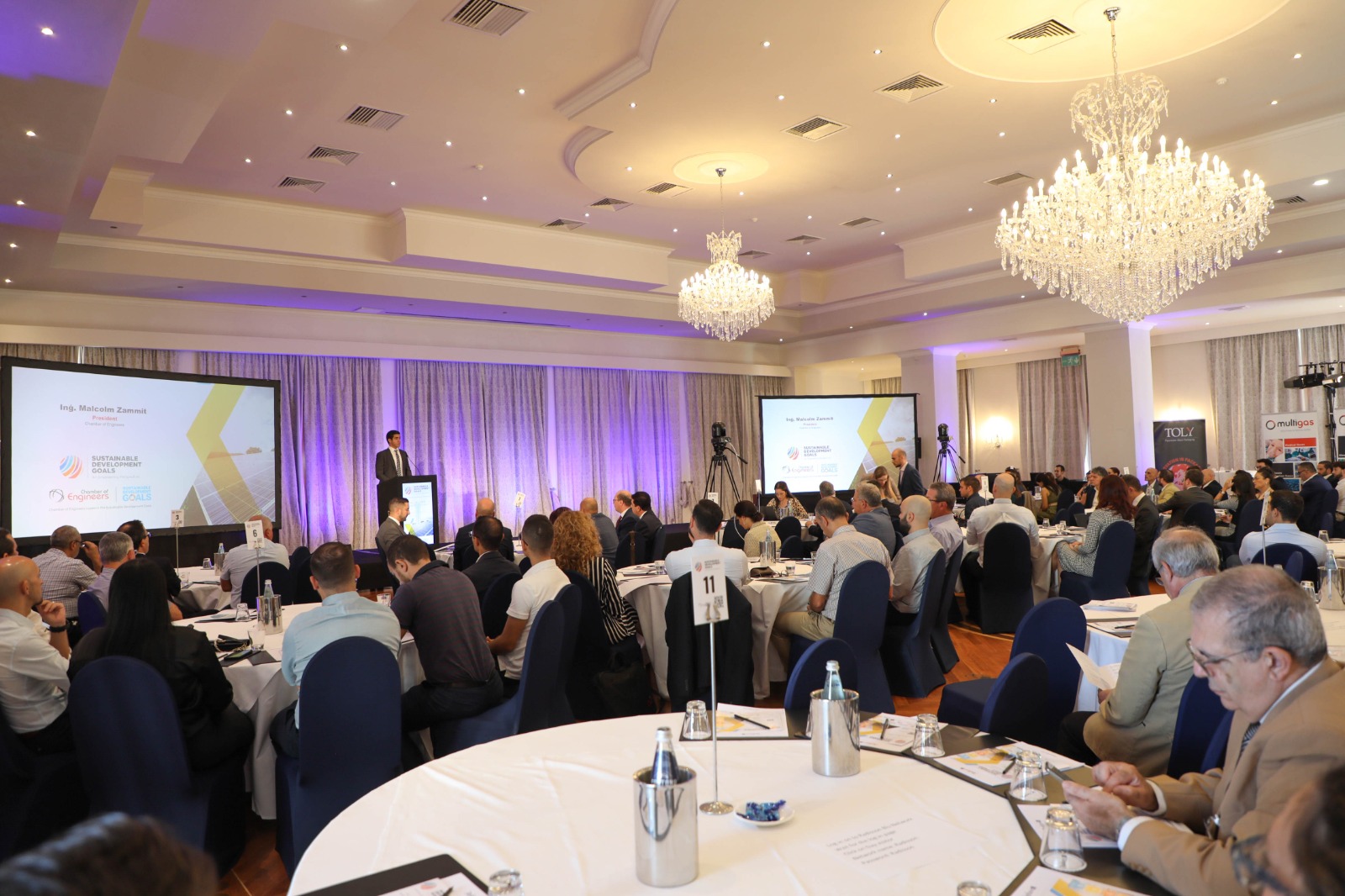
Engineers play a vital role in addressing basic human needs, alleviating poverty, promoting secure and sustainable development, responding to emergency situations, reconstructing infrastructure, bridging the knowledge divide, and promoting intercultural cooperation. We all have deadlines, expenses, targets, and competition. Yet the issue of sustainability is no longer a cliché mentioned by companies to look cool and contemporary. Like it or not, only those who adopt a sustainable business model will survive.
We must all understand social and environmental constraints and not just conform to financial necessities. When business or greed are allowed to lead in development, we face severe consequences, and today’s environmental woes are a case in point. As engineers, your profession has played and continues to play a critical role in the future of sustainable development. Whether building new products or working on technologies that will revolutionise our future, you are instrumental in designing, architecting, and devising how products, goods and services are delivered and consumed.
For development to be tenable, engineers must incorporate ‘sustainability’ into all the planning and engineering of products and projects. Technology is neither good nor bad in itself – it is how we apply it that determines whether balance is achieved. According to leading American engineering professor and author Bill Kelly: “social responsibility is not a new issue for the engineering profession. It is fundamental to defining engineering as a profession. Following the concept that the outward part of an engineer’s social responsibility affects public policy, the engineering profession is challenged today to help define social responsibility as part of defining the principles and practices of sustainable development.”
“… the time for action is now.”
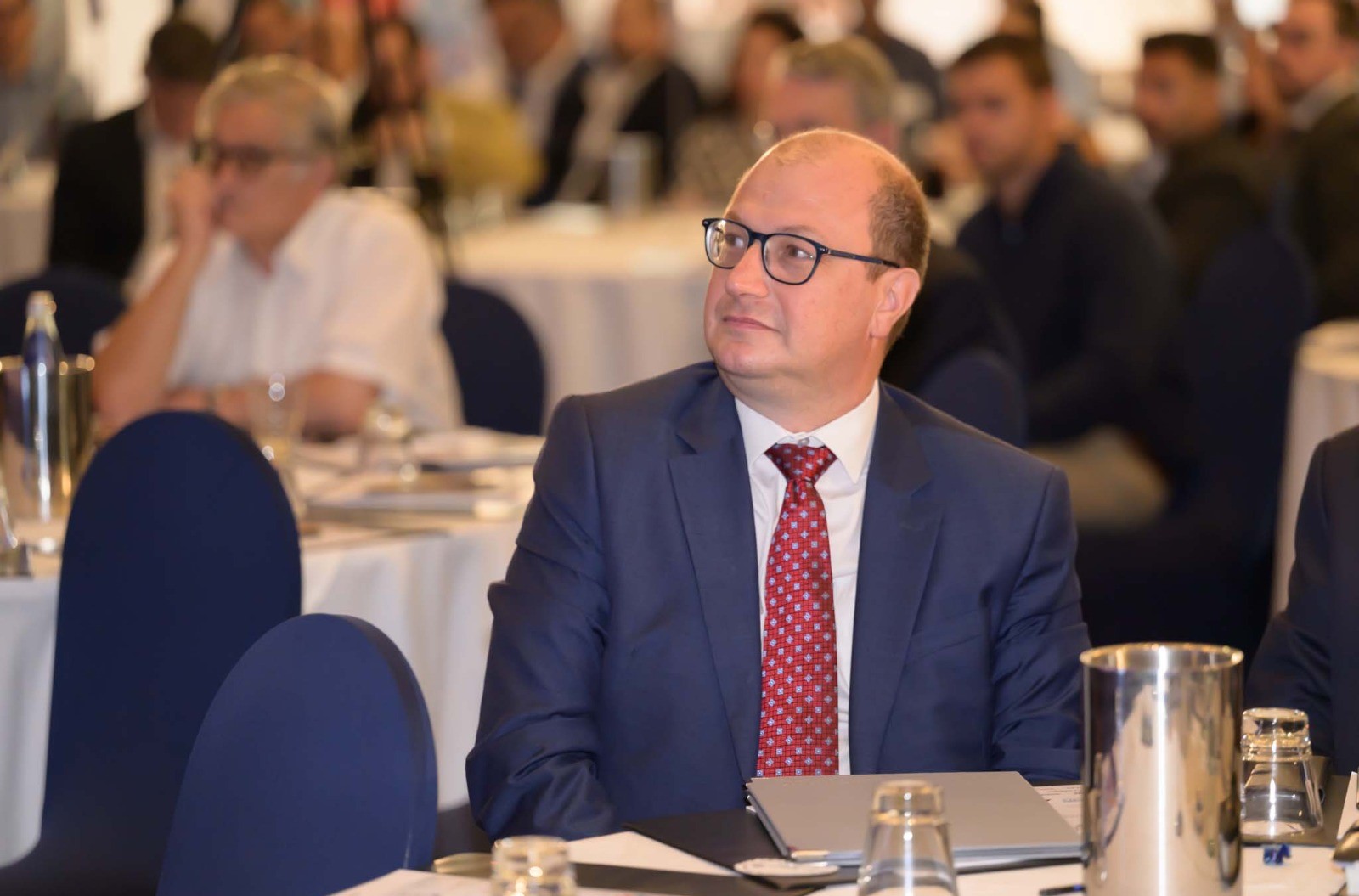
Clearly, the time for action is now. We cannot safeguard our economic progress and momentum unless environmental protection is inbuilt into our decision-making process. This requires a paradigm shift in our approach to future development. We can no longer afford the business-as-usual approach. We need new methods and the reallocation of investments, particularly in innovation, research, and development in those areas where we need to improve most.
We must shift towards a green and inclusive economy, achieving equilibrium between environmental protection and economic development whilst ensuring that future growth is socially sustainable. This is even more necessary in these challenging times.
Let’s look at the construction and planning sectors in Malta, for instance. Malta’s Sustainable Development plan envisages the strengthening of how we look at our dwellings, how environmentally sustainable our houses are, how much heat they attract and retain, how humid they are and how many resources we can save if they are designed better. The Building and Construction Authority springs to mind here together with the whole real estate sector.
More importance to environmental impact and renewable energy aspects. Priority needs to be given to those projects whose operations are working towards carbon neutrality. The whole real estate sector needs to up its game in this regard. Establishing the Building and Construction Authority in 2021 was an important milestone that marked our government’s commitment to bringing the necessary change forward. This authority is spearheading the creation of a construction eco-system, embracing good governance, policies and tailormade practices that support networking platforms promoting compliant and sustainable buildings.
The EPC certification shouldn’t be underestimated. Soon, the energy efficiency of a property and the size of a property’s carbon footprint will directly affect qualification for bank finance, and the cost of such financing for instance. Just think about that! One must recognise the inputs from engineers in the construction and property sector, for instance – and how much their insights and ability can help create greater awareness and develop energy-efficiency solutions in buildings.
Engineers must champion the drive for sustainable development in Malta. It would help if you pinpointed where there are things which need addressing. Engineers must also come up with practical solutions. Your skills and knowledge are very much needed to help expedite the country’s sustainability challenges. There are processes where the role of a warranted engineer should be mandatory by law, so your say as a professional is essential – especially on some issues concerning construction, manufacturing and projects affecting public health and safety. This a discussion that I intend to carry out with the Chamber of Engineers.
We need to see more engineers in government institutions and authorities and those key economic sectors where your expertise will make all the difference. This is a time which we can consider as an opportune moment for the engineering profession to change a challenging situation into an opportunity for growth. But we also need to make sure that along the way we shall have, at the technical and professional levels, the right competencies ready to take-up these challenges. Capacity building is also a priority. The Engineering Profession needs to be promoted further. People must be made more aware about engineering projects, learn more about the Chambers’ work and events and get to know its members. The younger generations need to be made aware of the opportunities that this profession offers.
Malta cannot succeed in its 2050 UN Sustainable Development Goals target without the help of engineers. One expects to see more participation of engineers not only in industry and business but also in the regulatory sector. We look at the engineering community for ideas, guidance, and vision. Your profession can help create new opportunities for retrofitting existing buildings to become more energy efficient.
We need engineers to ensure that our country continues to enjoy safe, clean water (Goal 6) and sanitation for all, help source out sustainable energy sources (Goal 7), and develop resilient infrastructure (Goal 9) and liveable cities (Goal 11).
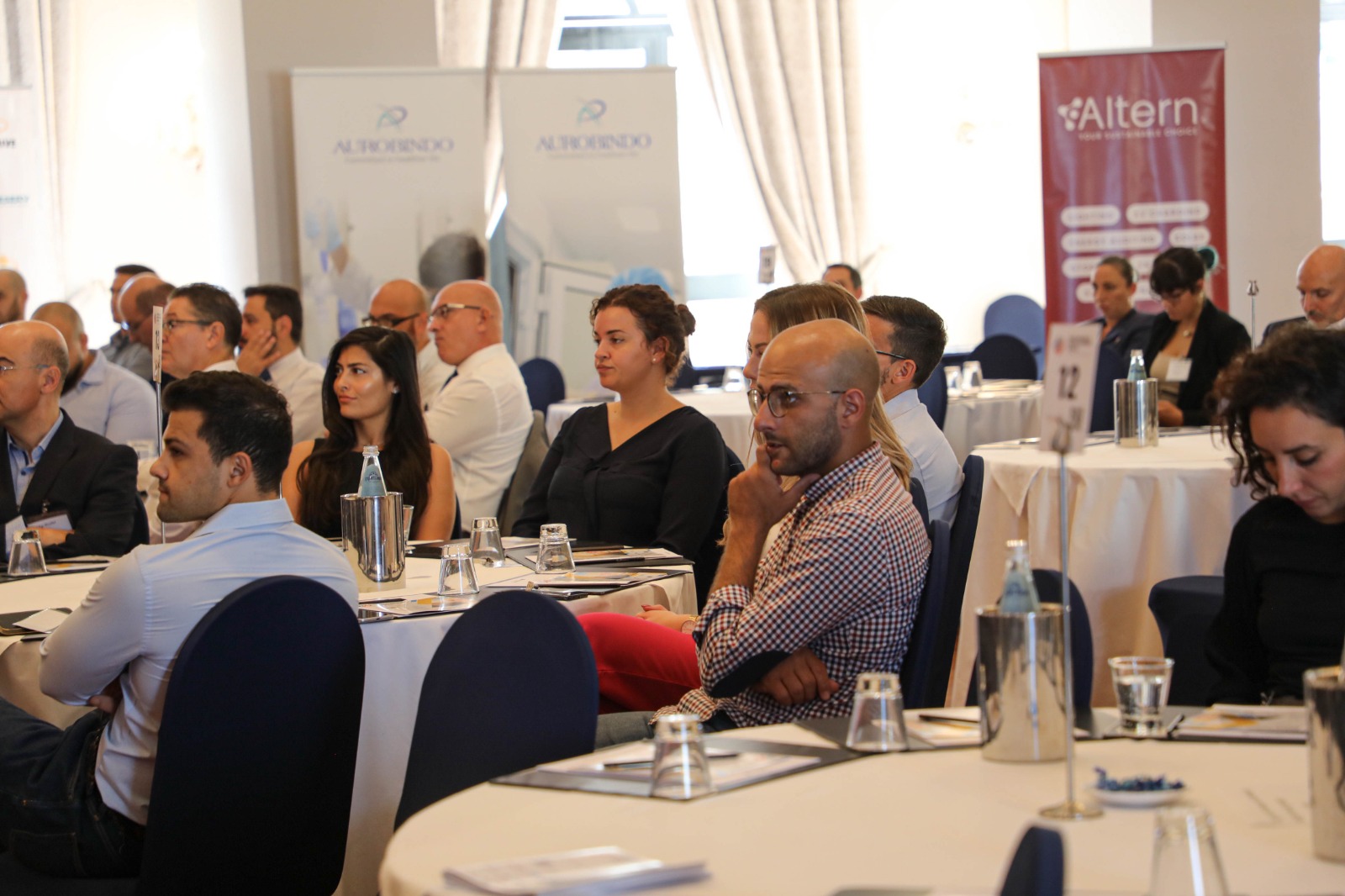
Contingency planning against the risks of natural disasters and climate change is also an essential part of Goal 11. Engineers are key in designing and building resilient and sustainable infrastructure for our cities. The transition to a low-carbon economy is central to Malta’s future economic development model. A low-carbon economy can be a win-win situation for all those concerned. Achieving these targets will need integrated engineering solutions that provide resilient infrastructure, sustainable energy, and access to the latest communication technology.
There’s quite a lot to do, as you can see. The government has ambitious plans and acknowledges that it needs to set the pace and act as a role model. Businesses and professionals are expected to take advantage of favourable economic policy towards low-carbon investment, which in turn shores up the competitiveness of the country and contributes to lower emissions and improved air quality and health benefits.
Malta’s vision is to align itself with the pace the EU intends to take. The European economy must make drastic cuts in emissions which will see a reduction of up to 80% from 1990 levels by 2050. Such cuts will be progressive, with interim reduction targets of 40% and 60% by 2030 and 2040, respectively; this can only be possible without fundamental changes in consumption and production patterns and improved utilisation of resources which are already integrated into the modus operandi by other sectors, not least energy, transport, buildings, industry, and agriculture.
Meeting all the sustainable Development Goals is quite a tall order for any country, not least a small island like ours. We must muster all our human talents and professions, bringing all hands on deck to ensure we don’t miss the boat. This event offers us the opportunity to learn about the work in the various fields affecting sustainability, discover what other European states are doing, and follow in their footsteps. At the same time, we will discuss how the engineering profession can help make a difference in this world.
I congratulate the Chamber of Engineers on its effort to become a stronger beacon for the engineering profession in Malta. Malta recognises the hard work and dedication of the engineering community. Coincidentally, I take the opportunity to commend Ing. Michelle Cortis, who this month was elected to the Executive Board of the Federation of Professional Engineers, which gathers leading engineering bodies in Europe. The Chamber of Engineers offers hope for future generations, and I am most happy to collaborate with you to help make our future greener and more carbon-neutral!
